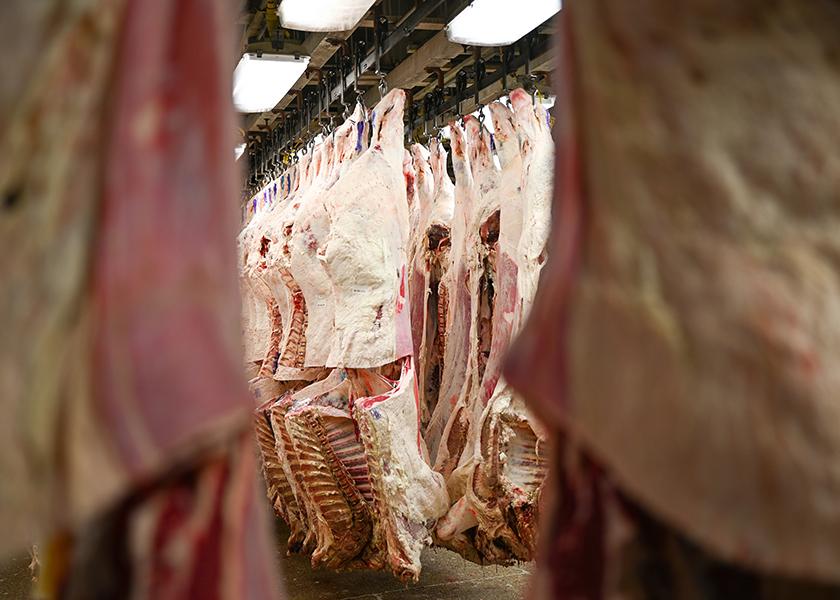High Steaks: Hearings Highlight Need for Congressional Action on Cattle Price Transparency

The beef supply chain was in the spotlight in Congress this week first with a House Ag Committee hearing on Wednesday morning that saw testimony from ag economists and cyber security experts. The House hearing was followed by a hearing in the afternoon in the Senate Judiciary Committee that put pressure on representatives from Tyson and JBS to explain pricing practices and lack of transparency in those practices.
The Judiciary Committee hearing comes after the Senate Ag Committee heard testimony on the issue last month. The National Cattlemen’s Beef Association’s (NCBA) vice president of governmental affairs Ethan Lane told AgriTalk guest host Clinton Griffiths Wednesday’s high-profile hearing was a continuation of that discussion.
“I think this was the evolution of that conversation. It was interesting to see some more focus on some of the transparency aspects trying to drill down push the packers a little bit on what more information can you share? How do we get more information in the hands of producers so that they're better equipped to engage in some of these conversations? How do we get that leverage pendulum swung back in the other direction?” he says. “This is all helpful because it is building that understanding on Capitol Hill of what some of those real challenges are. We can get 10 guys in the same room that understand the cattle market intricately and trade it every day, but translating that to federal policymakers that simply don't understand those nuances is a challenge.”
It dovetails with the push the Biden Administration has made with its executive order earlier this month to support small and medium sized packing plants and a push to increase slaughter capacity with more funding. And now the legislative hearings are drilling down into some of the things needed to fix the problems, Lane says.
“As we start to really get down to what we need to fix some of these issues to create more transparency in the marketplace, some of them might be regulatory and might just require a rulemaking at USDA and don't need anything from Congress. Others might need a statutory change in order to be effective,” he continues. “You need kind of both sides of the federal equation, really looking at this at the same time having a unified conversation in order to get to a point when we can really make something happen that's effective.”
Griffiths and Lane agree, one thing pushing the agenda is a unified front from the cattle industry and groups that are typically at odds coming together in the last few months to help momentum with these conversations.
The key things Lane sees happening in the near future include:
> A cattle contract library
> Different reporting requirements and information sharing from the USDA
> More price discovery and negotiated trade.
The last piece that Lane thinks would be helpful is feedback on the Department of Justice’s (DOJ) anti-trust investigation that’s been in the works for more than a year now.
“We've been talking about DOJ investigation for how long now? Our letter to DOJ along with everybody else in the world was Spring before last. We're, well over a year now, waiting for some kind of results there. I think it would be really helpful to get some feedback from them on just what they found. We know they were out doing interviews, we know they were talking to market participants. It remains really important that we get some information from DOJ about what they have found, and what they're seeing as far as any competition issues in the marketplace,” he says.
Lane notes that it’s not clear if the DOJ is still investigating or that it had decided there wasn’t anything further to pursue, but with as much riding on what’s going on in the cattle industry currently, it’s important to communicate with the industry and policy makers about what they’ve found.
Listen to the full conversation below.
Related:
Two of the Four Major Meatpackers Grilled Over Competition During Senate Hearing
Packers Pressed on Cash Cattle Prices Paid to Producers During Senate Hearing
House Ag Committee Takes a Turn Tackling Beef Supply Chain Issues
Accusations Of Anti-Competitive Practices In The Cattle Industry Drive Senate Ag Committee Hearing







